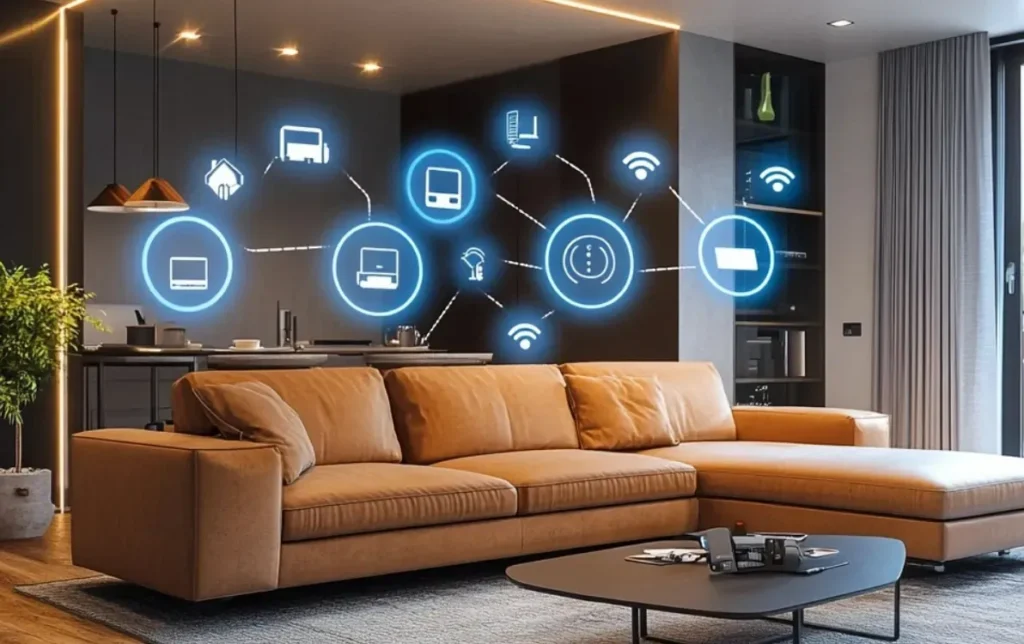
Smart Water Heater Integration: A Homeowner’s Guide
In today’s fast-paced world, integrating smart technology into our homes has become a necessity rather than a luxury. One of the key components of a smart home is the smart water heater integration. This technology not only offers convenience but also improves energy efficiency and reduces utility bills. If you’re a home enthusiast looking to upgrade your living space, understanding the benefits and processes of smart water heater integration is essential.

What is a Smart Water Heater?
A smart water heater is an advanced version of the traditional water heater, equipped with Wi-Fi connectivity and smart controls. It allows homeowners to monitor and manage their water heating system remotely using a smartphone or other smart devices. This integration enables the optimization of water usage, scheduling, and energy management, all while providing comfort and convenience.
Benefits of Smart Water Heater Integration
Energy Efficiency
One of the most significant advantages of smart water heater integration is improved energy efficiency. By adjusting heating schedules and monitoring usage patterns, these systems help reduce unnecessary energy consumption, leading to lower utility bills.
Remote Access and Control
With smart water heater integration, you can control your water heater from anywhere in the world. Whether you’re on vacation or at the office, you can adjust settings, turn the heater on or off, and receive alerts if any issues arise.
Enhanced Safety Features
Smart water heaters come with safety features such as temperature monitoring and automatic shut-off, reducing the risk of overheating and potential damage.
Integration with Smart Home Ecosystems
These water heaters can seamlessly integrate with other smart home systems, such as smart hubs and family management systems, providing a cohesive and efficient home automation experience.
Steps to Integrate a Smart Water Heater
Evaluate Your Current System
Before upgrading, assess your current water heater’s compatibility with smart technology. Some older models may require additional components or even a complete replacement.
Choose the Right Smart Water Heater
Selecting the right smart water heater depends on your household’s hot water needs, energy source, and budget. Consider factors like capacity, efficiency ratings, and connectivity features.
Installation Process
Professional installation is recommended for smart water heater integration to ensure proper setup and functionality. An expert can also provide guidance on optimizing settings for maximum efficiency.
Configuration and Setup
Once installed, configure your water heater using the manufacturer’s app or interface. Set schedules, monitor usage, and integrate with other smart home devices for a streamlined experience.
Common Challenges and Solutions
Compatibility Issues
Compatibility can be a concern when integrating a smart water heater. Ensure that your home’s Wi-Fi network and other smart devices are compatible with the water heater model you choose.
Initial Costs
While the initial investment for a smart water heater can be higher than traditional models, the long-term savings on energy bills often offset this expense.
Technical Support
Some homeowners may face technical issues during setup or operation. Most manufacturers offer customer support and online resources to assist with troubleshooting.
The Future of Smart Water Heaters
The integration of smart technology into water heaters is just the beginning. As the demand for energy-efficient solutions grows, advancements in AI and IoT will continue to enhance the capabilities of smart water heaters, making them an indispensable part of modern homes.
Conclusion
Investing in smart water heater integration is a wise decision for any homeowner looking to enhance energy efficiency and convenience in their home. By understanding the features, benefits, and processes involved, you can make an informed decision that best suits your household’s needs. Embrace the future of home automation and enjoy the comfort and savings that come with it.

FAQs
What is the lifespan of a smart water heater?
The lifespan of a smart water heater is similar to traditional models, typically ranging from 10 to 15 years, depending on maintenance and usage.
Can I install a smart water heater myself?
While some DIY enthusiasts may be tempted to install a smart water heater themselves, professional installation is recommended to ensure proper setup and safety.
Are smart water heaters compatible with solar energy systems?
Yes, many smart water heaters are compatible with solar energy systems, allowing homeowners to maximize their energy savings by utilizing renewable energy sources.
For more information on smart home technology, visit ScienceDirect or explore the Wired article on home automation.
This article contains affiliate links. We may earn a commission at no extra cost to you.